February 14, 2018 | Human Resources
Capturing Employee Tribal Knowledge—Before It’s Too Late
 By 2025, nearly 25 percent of the United States population is expected to be 60 years of age or older. With this demographic preparing to exit the workforce and enter retirement, what can be done to retain their knowledge and pass it down to the next generation of employees? After all, a good portion of the knowledge that our “employee elders” possess is not written down or stored within a computer—it’s stored in their head. And this is especially true within the manufacturing sector.
By 2025, nearly 25 percent of the United States population is expected to be 60 years of age or older. With this demographic preparing to exit the workforce and enter retirement, what can be done to retain their knowledge and pass it down to the next generation of employees? After all, a good portion of the knowledge that our “employee elders” possess is not written down or stored within a computer—it’s stored in their head. And this is especially true within the manufacturing sector.
A term first coined within the Six Sigma community, tribal knowledge is described as knowledge that is known, yet undocumented. It can consist of decades worth of valuable information and hands-on experiences, and losing this knowledge can be damaging to any organization.
However, the situation is even more dire for manufacturers. IndustryWeek reports that nearly one-quarter of manufacturing employees are age 55 or older. And in California, a state which leads the country in manufacturing market share, this is especially troubling.
Acknowledging the Value of Tribal Knowledge
Some manufacturing leaders are far removed from factory floors, so they may not understand the wealth of tribal knowledge some of the more seasoned employees can possess. Capturing this knowledge can help the organization achieve more success by:
- Maintaining competitive advantage. Manufacturing business processes, operating methods, and proprietary data can be a unique differentiator from others within the same space.
- Driving innovation. By taking a look at the old way of doing things, a small business owner may be able to find newer, more effective, and more efficient ways of doing things.
- Teaching the next generation. New hires, without the benefit of tribal knowledge, are unable to fill the shoes of the person they replaced. “The manufacturing industry has become so specialized that companies are looking for hyper-specific skills that few outside workers could be expected to have,” states noted economists Andrew Weaver and Paul Osterman.
Until manufacturing leaders acknowledge the value of tribal knowledge and put a plan in place to obtain it, they will continue to miss out on new opportunities.
Expect Some Resistance
One aspect of capturing tribal knowledge that may come as a surprise is an employee’s unwillingness to share. Some of the most common reasons employees push back include:
- They have job security concerns. Some employees feel their know-how keeps them valued, and that sharing their secrets makes it easier for someone else to step into their shoes
- They don’t follow procedure. Over time, many employees discover shortcuts within their job position; they know they’re not doing things “by the book” but they are getting things done. Documenting these workarounds would mean giving up their alternative methods.
- They like being “the fixer.” Some of the keepers of tribal knowledge simply like being the holder of said knowledge; it makes them feel good to have others rely on them, and they don’t even mind those late night calls because of the ego stroke it gives them.
Identifying Knowledge Gatekeepers
To begin capturing tribal knowledge, you’ll need to look at which employees may have the most to offer. Generally, you’re going to want to start with the most seasoned veterans. These workers are also apt to be the ones closest to retirement, and they may be more likely to share their knowledge; in their mind, they have less to lose by divulging information because they’re on their way out anyhow.
When faced with some of the previously mentioned pushback, be forthcoming and continue to stroke their ego; let them know that you know that no one can do the job like they do. Reassure them that their job is not in danger, and that you simply need to collect the information in preparation for when they decide they are done.
And if they are cutting corners, don’t reprimand them; instead, reevaluate job procedures. If their shortcut isn’t compromising quality or safety, they may have found a better method that can be adopted across the plant.
Analyze, Digitize, and Distribute
Not all tribal knowledge is good knowledge. As mentioned, some may involve shortcuts which can be, at their best, eye-opening opportunities for improvement; or at their worst, life-threatening dangers. That’s why it’s important to analyze everything and determine what should be documented for future workers, and what should be forgotten.
Now it’s time to digitize your newfound information (and be sure to maintain digital documentation; you don’t want to go through this process again with the next round of retirees). Once the information has been digitized, where appropriate, share it widely across the organization to engage employees, promote collaboration, and expand tribal knowledge (this could even lead to organic development of a stronger company culture, something that is attractive to the new generation of millennials entering the workforce.
Knowledge is a terrible thing to waste. Tribal knowledge, perhaps even more so—because when it’s gone, it’s lost forever. Before another valuable company veteran walks off your factory floor, be sure to learn everything you can from them. You won’t have another chance.

